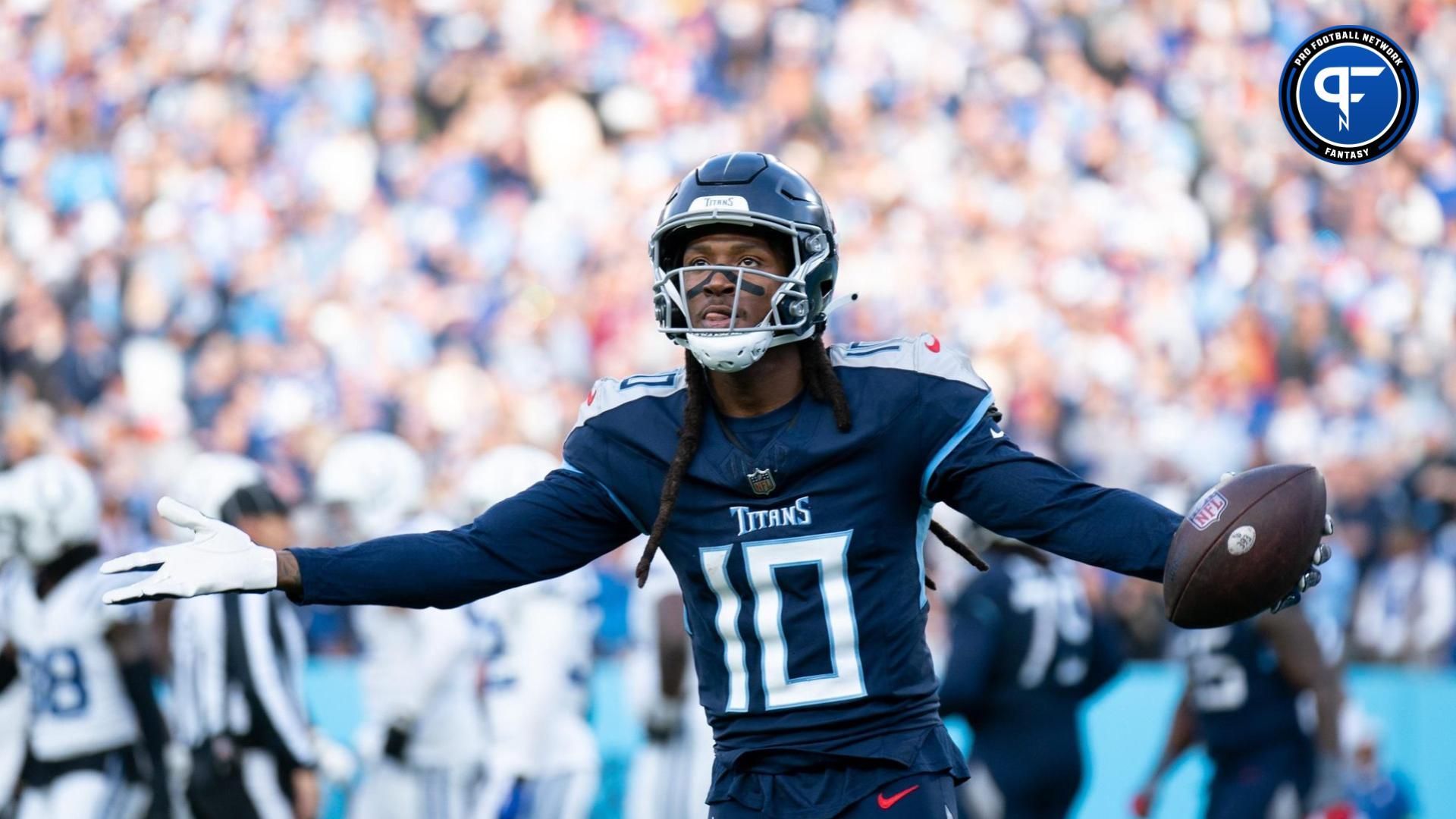Tennessee Titans WR DeAndre Hopkins celebrated his 32nd birthday this summer. The age curve is something that needs to be considered when projecting him for the 2024 season, but the future Hall of Famer proved to have plenty of gas left in the tank last season (75-1,057-7).
In theory, the Titans appear interested in opening up their offense more this season. They let Derrick Henry walk and brought in Calvin Ridley. Does investing in Hopkins this season and getting ahead of growth from Will Levis make sense in the seventh round of your fantasy football draft?
DeAndre Hopkins’ 2024 Fantasy Forecast
The veteran receiver produced his best game of 2023 in Levis’ first career start (4-128-3 against the Atlanta Falcons), leading to thoughts of a profitable connection as Hopkins navigates the twilight of his career.
DeAndre Hopkins and route pacing pic.twitter.com/y0QbCtWIWO
— Josh Norris (@JoshNorris) June 5, 2024
Those hopes, however, were put on hold with an underwhelming final two months of the season. Only once more did Hopkins clear 75 receiving yards, and he finished the season with four straight games in which he did not record a 20-yard reception.
In evaluating Hopkins for 2024, we must take into account the age curve while also penciling in some growth from Levis. Don’t forget that in 2022, he averaged just 11.2 yards per catch while scoring once every 32 targets.
It’s a very delicate projection. While we’re not talking about the draft equity of a fantasy starter, championship teams typically have elite depth. Given his physical tools, Hopkins can serve as that if everything goes just right.
But will it?
On the bright side, Hopkins was available last season. He appeared in all 17 games after totaling just 19 over the two seasons prior and had plenty of juice at the end of the year (38.5% target share in the finale against the Jacksonville Jaguars).
On the other side of that coin, however, is the level of short-term development that will be required from Levis for Hopkins to ever be considered a viable option for your fantasy lineup.
Due to a 54.7% catch rate a season ago, Hopkins posted his lowest per-game catch number (4.4) in a healthy campaign since his rookie season — not a stat you’d expect to hear from a star receiver that garnered 28.7% of Tennessee’s targets.
In a quiet offseason, I wouldn’t have a problem projecting a higher catch rate and sustaining his target share. If that were the case, I’d make Hopkins a strong buy at his current ADP (WR35-40 range, seventh round), with the potential reward projected to be far greater than the risk.
This, however, wasn’t a “quiet offseason.” The Titans added a younger receiver who shares some of the same downfield skills as him in Ridley and committed to a versatile backfield that features two running backs who are pass-catching threats (Tyjae Spears and Tony Pollard) — two more than they relied on last season.
I’m more confident that the number of targets dips than I am that the quality spikes, making Hopkins a tough sell. You can get rookie receivers with superior talent under center and a clear path to the WR1 role in their respective offenses two rounds later, which is the direction I’m more likely to go at the position (Ladd McConkey and Keon Coleman).
As for the seventh round, I’ve found myself landing on just about every position besides wide receiver. In this range, I have shares of Evan Engram, Kyler Murray, and Javonte Williams. I’m more likely to take all of them over Hopkins unless I’m sitting really light at WR, something that I very much aim not to be through six rounds.

